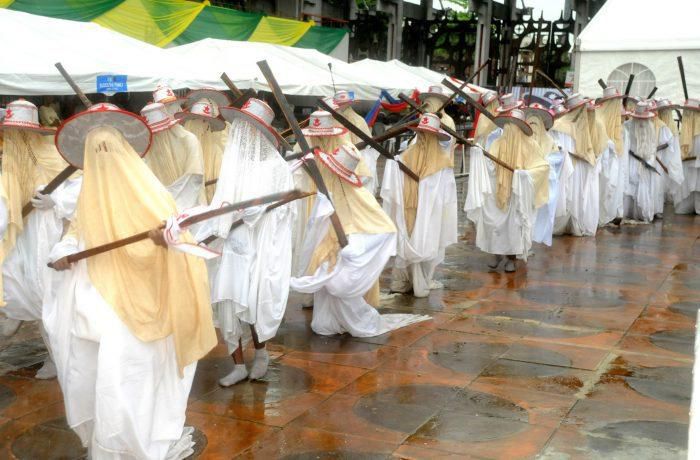The concept of reincarnation in Igbo and Yoruba culture
)
Although diverse, some of these cultures share similar beliefs; an excellent example of such is the concept of death, reincarnation, and the afterlife.
Reincarnation is a concept of belief that when a person dies, the mortal body is separated from the soul, and the soul proceeds to live again in another physical body.
It is believed that death is not the end of the road but merely a transition from one form of existence to another. In other words, only a separation from the mortal body and the immortal soul.
The traditional Igbo culture embraces the belief in reincarnation; However, civilization and Christianity have influenced a huge part of the people; what is left of this belief is preserved by some.
The concept of reincarnation, Ilo uwa has it is called, was said to have been a widely accepted belief before the whites came into the picture. One of the pieces of evidence of reincarnation that solidifies their belief is how bodily marks from a dead relative reappear on the body of newborns.
These bodily marks may be scars, burns from accidents, or a birthmark; the reappearance of these marks on a newborn in the same family or kin of the deceased ascertains reincarnation.

The belief in reincarnation is the bedrock of the Yoruba culture; atunwaye has it is often called may occur in various forms; akudaaya- born to die and reappear, ipadawaye- the ancestor’s rebirth, abiku- born to die.
Although another school of thought believes that only those who died untimely are reincarnated, one thing remains, the belief of reincarnation is a concept common in Yoruba culture.
This is why Yoruba people give their children names like “Yejide or Babajide’’ meaning Mother or Father reawakens, respectively, or “Babatunde or Yetunde,” meaning Father or Mother returns.
Ultimately, the similarities in death, reincarnation and after-life concept are one of the many beliefs and concepts that bind the Igbo and Yoruba people together.
)
)
![The health benefits of ginger and garlic are unbelievable [Food NDTV]](https://image.api.sportal365.com/process/smp-images-production/pulse.ng/01082024/200694f2-3977-47a4-a142-89c80fe6766e?operations=autocrop(236:157))
)
![10 countries where prostitution is legal. [Source - scoop]](https://image.api.sportal365.com/process/smp-images-production/pulse.ng/31072024/5eda0369-74f6-4a3b-82f7-d7dab249c8ac?operations=autocrop(236:157))
![Tribal marks of Nigerian people and what they mean. [guardian]](https://image.api.sportal365.com/process/smp-images-production/pulse.ng/01082024/45e8c254-ebf2-4262-b639-c83e8b56a32e?operations=autocrop(236:157))
)
)
)
)
)
)
)
![2026 Golden Globes: Teyana Taylor, Timothee Chalamet and the biggest winners [FULL LIST]](https://sportal365images.com/process/smp-images-production/pulse.ng/12012026/002666db-358d-4deb-9510-84cdb274ffda.png?operations=autocrop(112:112))
)
)